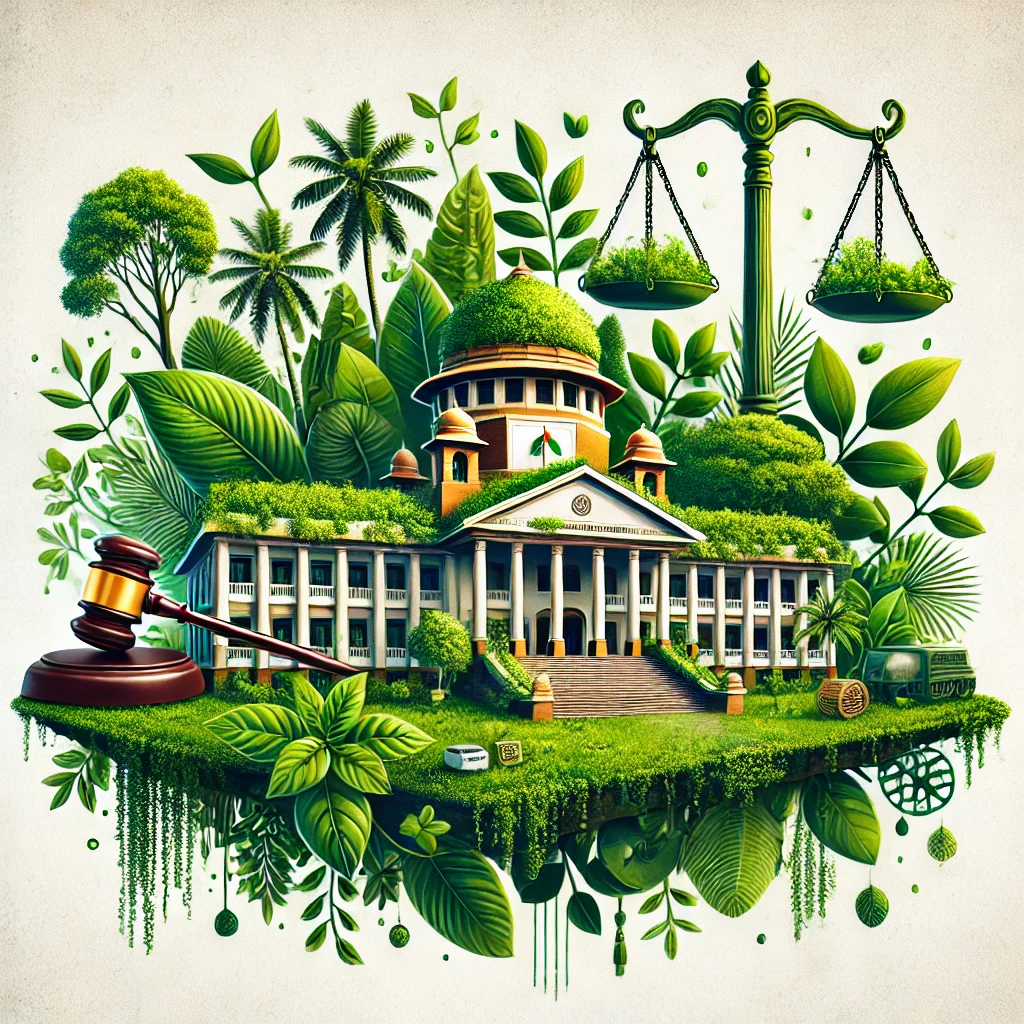Environmental laws at Djibouti
Djibouti, located in the Horn of Africa, has been working on developing and enforcing environmental laws to address its unique environmental challenges. The country faces issues such as water scarcity, desertification, coastal erosion, and biodiversity protection due to its arid climate and location along important maritime routes. While Djibouti's environmental legal framework is still evolving, there are a number of laws and policies in place to address environmental protection, natural resource management, and sustainable development.
Here is an overview of the environmental laws and regulations in Djibouti:
1. Environmental Framework Law (1995)
The Environmental Framework Law (Law No. 95/AN/95/2nd L) is the foundational legal framework for environmental protection in Djibouti. It provides the general principles for managing the country’s natural resources and protecting the environment. The law covers a range of environmental issues, including:
Sustainable Development: The law establishes the principle of sustainable development, requiring that environmental considerations be integrated into all sectors of national planning and development.
Pollution Control: It includes provisions for controlling pollution, particularly air and water pollution, and mandates the prevention of environmental degradation.
Environmental Impact Assessments (EIA): It requires environmental impact assessments for major projects that may have significant impacts on the environment.
2. The Law on Protection of Nature and Biodiversity (2003)
The Law on Protection of Nature and Biodiversity (Law No. 151/AN/03/6th L) is specifically focused on preserving Djibouti’s biodiversity and natural resources. The law addresses issues such as:
Protected Areas: It establishes national parks and reserves to protect critical habitats and species in Djibouti. These areas are meant to conserve the country’s flora and fauna, including endemic species.
Wildlife Protection: The law prohibits hunting, capture, and trade of endangered species and establishes penalties for violations.
Forest and Ecosystem Protection: It provides for the protection and sustainable management of Djibouti’s forests, coastal zones, and other ecosystems.
Biodiversity Conservation: The law is aimed at preventing the extinction of species through habitat protection and the establishment of conservation areas.
3. Water Code (2014)
Djibouti’s Water Code (Law No. 134/AN/14/7th L), which was adopted in 2014, regulates the management and use of water resources in the country. The law is vital in a region where water scarcity is a major challenge. Key provisions of the Water Code include:
Water Resource Management: It establishes mechanisms for the equitable allocation and management of water resources, both for domestic and industrial use.
Protection of Water Sources: The law requires that water sources be protected from contamination and overuse. It also regulates the use of groundwater and surface water to prevent depletion.
Water Pollution Control: There are provisions for monitoring and controlling pollution in water bodies, including wastewater treatment and disposal practices.
International Water Cooperation: The law also emphasizes cooperation with neighboring countries for the management of shared water resources, particularly those that cross national boundaries.
4. The Law on Environmental Protection and the Prevention of Pollution (2014)
The Law on Environmental Protection and the Prevention of Pollution (Law No. 139/AN/14/7th L) aims to combat environmental pollution and mitigate its effects on human health and ecosystems. The law addresses:
Pollution Control: The law sets out measures for controlling air, water, soil, and noise pollution from industrial activities, transportation, and waste disposal.
Waste Management: Regulations for the management of hazardous and non-hazardous waste, including provisions for recycling and waste reduction.
Industrial Waste: It requires industries to take responsibility for managing and treating waste generated by their operations.
Penalties for Violations: The law imposes fines and penalties on entities that violate environmental protection regulations.
5. Fisheries and Marine Resources Laws
Given Djibouti's coastal location along the Red Sea and the Gulf of Aden, the country has several laws that aim to regulate the use and protection of its marine resources. Key provisions include:
Marine Conservation: The protection of marine ecosystems, including coral reefs and fisheries, is a priority. The law limits overfishing and mandates sustainable fishing practices to protect fish stocks.
Marine Pollution: Djibouti has laws that regulate and control marine pollution, especially from oil spills, shipping activities, and untreated wastewater discharges.
Fisheries Management: The law governs the management of fishery resources, ensuring that fishing is done sustainably and that fish stocks are not over-exploited.
6. Coastal Zone Management
Djibouti is actively working on coastal zone management due to the importance of its coastline for biodiversity, tourism, and fisheries. The coastal zone management regulations cover:
Coastal Erosion: Measures to combat coastal erosion and protect coastal ecosystems such as mangroves and coral reefs.
Sustainable Development: Regulations to promote sustainable development along the coast, preventing overdevelopment and degradation of natural coastal habitats.
Integrated Coastal Zone Management (ICZM): The government is working on a long-term strategy for sustainable coastal management that incorporates environmental, social, and economic factors.
7. Climate Change and Adaptation Strategy
Djibouti is highly vulnerable to the impacts of climate change, including rising temperatures, droughts, and sea-level rise. As part of its efforts to address these challenges, Djibouti has developed a National Adaptation Plan (NAP) to:
Climate Resilience: Improve the country's resilience to climate change by promoting climate-smart agriculture, water conservation, and the protection of vulnerable ecosystems.
Greenhouse Gas Emissions Reduction: Although Djibouti has a small carbon footprint, the country is working to reduce its greenhouse gas emissions through energy efficiency, renewable energy projects, and promoting low-carbon development pathways.
International Cooperation: Djibouti is also a party to the Paris Agreement on climate change and is working to implement its commitments to reduce emissions and adapt to climate change.
8. Environmental Education and Public Awareness
Djibouti is working to raise public awareness about environmental issues and promote environmental education. This includes:
Public Participation: Encouraging public participation in environmental decision-making, especially with respect to development projects and environmental assessments.
Community Engagement: Promoting environmental awareness campaigns and education programs aimed at encouraging sustainable practices in local communities.
9. Environmental Impact Assessments (EIA)
Environmental Impact Assessments (EIA) are mandatory for projects that are likely to have significant environmental impacts. The law requires that an EIA be conducted before any major development project, including industrial, commercial, and infrastructure projects. The EIA process includes:
Public Consultation: Local communities and stakeholders must be consulted as part of the EIA process to ensure that their concerns are addressed.
Mitigation Measures: Projects that pass the EIA process are required to implement mitigation measures to minimize adverse environmental impacts.
10. Enforcement and Regulatory Bodies
Several institutions are responsible for enforcing environmental laws and regulations in Djibouti:
Ministry of Agriculture, Water, Fisheries, and Livestock: This ministry oversees the implementation of laws related to water, fisheries, and natural resource management.
Djibouti Environmental Agency: An agency responsible for environmental monitoring and ensuring compliance with environmental protection regulations.
Environmental Police: Specially designated police officers tasked with enforcing environmental laws, including those related to pollution, wildlife protection, and natural resource management.
Challenges and Environmental Issues in Djibouti:
Water Scarcity: Djibouti faces significant challenges related to water scarcity and the sustainable management of its limited water resources.
Desertification and Land Degradation: The country is prone to desertification, and efforts to combat land degradation through sustainable land management practices are essential.
Coastal Erosion and Marine Pollution: The protection of coastal areas and marine ecosystems from erosion and pollution remains a significant challenge.
Biodiversity Loss: Despite its relatively small land area, Djibouti is home to a variety of unique species, and biodiversity conservation remains a priority.
Climate Change: Djibouti is particularly vulnerable to the impacts of climate change, including sea-level rise and extreme weather events, and adaptation strategies are crucial.
Conclusion:
Djibouti has made significant progress in developing its environmental legal framework to address key issues such as biodiversity conservation, water resource management, pollution control, and climate change adaptation. However, the country still faces several environmental challenges due to its arid climate, limited natural resources, and vulnerability to climate change. Continued enforcement of environmental laws, investment in sustainable development, and international cooperation will be critical for Djibouti to meet its environmental and sustainable development goals.












comments